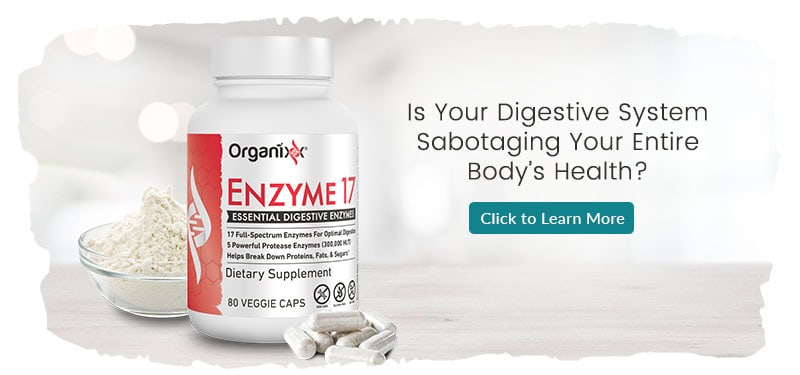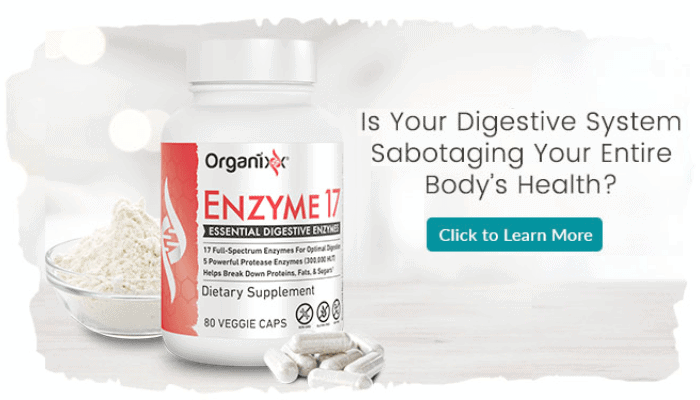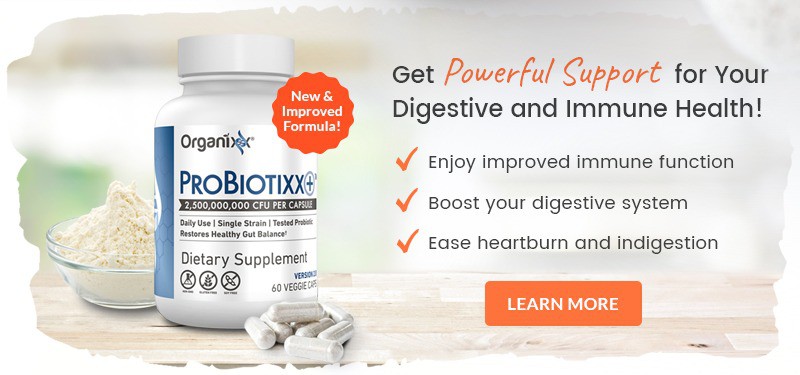Are you looking to improve your digestive health naturally? In this article, we delve into the benefits of magnesium for digestion.
From its vital role in activating enzymes to its potential in alleviating digestive disorders, discover how magnesium can revolutionize your gut health journey.
Let’s explore the remarkable benefits of magnesium and unlock the secrets to a happier, healthier digestive system!
Understanding Magnesium and Its Role in the Body
Magnesium is the fourth most abundant mineral in the human body, involved in over 300 biochemical reactions.
It acts as a cofactor for enzymes that are responsible for essential functions such as protein synthesis, muscle and nerve function, blood glucose control, and blood pressure regulation.
The Importance of Magnesium
Magnesium is vital for maintaining a healthy digestive system. It helps convert food into energy, ensuring that nutrients are properly metabolized and absorbed.
Additionally, magnesium relaxes the muscles of the gastrointestinal tract, promoting healthy bowel movements and preventing constipation.
Furthermore, magnesium plays a crucial role in bone health by assisting in the regulation of calcium levels in the body.
It helps to maintain the structural integrity of bones and teeth, working in tandem with calcium and vitamin D to support bone density and prevent conditions like osteoporosis.
How Magnesium Works in the Body
When you consume magnesium-rich foods or supplements, it is absorbed in the small intestine and transported to various cells throughout the body.
Once inside the cells, magnesium assists in the production and utilization of ATP (adenosine triphosphate), the main energy currency of our cells.
This energy production process fuels the digestive system, enabling it to break down food and absorb nutrients effectively.
Moreover, magnesium is involved in the regulation of neurotransmitters in the brain, contributing to mood stability and stress management.
It helps to modulate the activity of GABA receptors, which are responsible for calming the nervous system and reducing anxiety.
Adequate magnesium levels have been linked to improved mental health and cognitive function.
The Connection Between Magnesium and Digestion
Now that we understand the role of magnesium in the body, let’s explore its specific impact on digestion.
Magnesium is a crucial mineral that not only supports various bodily functions but also plays a significant role in digestion.
Its impact on digestive processes goes beyond just aiding enzyme activation; magnesium is involved in muscle relaxation within the digestive tract, which promotes healthy bowel movements and prevents issues such as constipation.
Additionally, magnesium helps regulate the transport of ions across cell membranes in the intestines, contributing to proper nutrient absorption.
Magnesium and its Impact on Digestive Enzymes
Digestive enzymes are substances that help break down food into smaller, more easily absorbable components.
Magnesium plays a vital role in the activation and function of these enzymes, ensuring efficient digestion.
Without sufficient magnesium levels, the production of these enzymes may be compromised, leading to poor absorption of nutrients and digestive issues.
Moreover, magnesium supports the production of bile, a substance produced by the liver that aids in the digestion and absorption of fats.
Bile emulsifies fats, breaking them down into smaller particles that can be acted upon by enzymes.
By facilitating this process, magnesium contributes to the overall breakdown and utilization of dietary fats, an essential aspect of digestion.
Magnesium and Gut Health
Studies have shown a strong link between magnesium deficiency and gut health issues.
Magnesium helps maintain the balance of gut bacteria, which is essential for proper digestion and overall gut health.
It also supports the production of short-chain fatty acids, which nourish the cells lining the intestinal walls and promote a healthy gut environment.
Furthermore, magnesium acts as a natural laxative by drawing water into the intestines, softening the stool and promoting regular bowel movements.
This gentle laxative effect can help alleviate occasional constipation and support overall gastrointestinal health.
Adequate magnesium levels in the body are crucial for maintaining a well-functioning digestive system and promoting optimal nutrient absorption.
The Benefits of Magnesium for Digestive Disorders
Several digestive disorders can significantly impact a person’s quality of life. Fortunately, magnesium has been found to offer relief for some of these conditions.
When it comes to digestive health, magnesium plays a crucial role in maintaining proper muscle function throughout the gastrointestinal tract.
This essential mineral is involved in over 300 enzymatic reactions in the body, including those responsible for breaking down food and absorbing nutrients.
Magnesium deficiency can lead to impaired digestive function, highlighting the importance of adequate magnesium intake for overall gut health.
Magnesium and Irritable Bowel Syndrome (IBS)
IBS is a common digestive disorder characterized by symptoms like abdominal pain, bloating, and changes in bowel movements.
Research suggests that magnesium supplementation can help alleviate these symptoms by promoting muscle relaxation in the gastrointestinal tract.
This leads to reduced pain and improved bowel regularity for individuals with IBS.
In addition to its muscle-relaxing properties, magnesium also plays a role in regulating neurotransmitters in the gut that can influence bowel habits.
By modulating the activity of neurotransmitters like serotonin, magnesium helps promote a healthy balance in the gut microbiome, which is essential for managing IBS symptoms and improving overall digestive wellness.
Magnesium’s Role in Treating Constipation
Constipation is a condition characterized by infrequent bowel movements and difficulty passing stool.
Magnesium acts as a natural laxative by attracting water into the intestines, softening the stool, and promoting regular bowel movements.
Additionally, magnesium helps relax the muscles of the intestinal wall, making it easier for stool to move through the digestive tract.
Furthermore, magnesium deficiency has been linked to an increased risk of constipation due to its role in maintaining proper muscle function in the colon.
By ensuring an adequate intake of magnesium through diet or supplementation, individuals can support healthy bowel habits and prevent the discomfort associated with constipation.
How to Incorporate More Magnesium into Your Diet
Ensuring an adequate intake of magnesium is vital for maintaining a healthy digestive system.
Magnesium is a mineral that plays a crucial role in over 300 enzymatic reactions in the body, including energy production, muscle function, and nerve signaling.
It also helps regulate blood sugar levels and blood pressure, making it essential for overall health and well-being.
Here are some tips to help you incorporate more magnesium into your diet:
Foods Rich in Magnesium
Include magnesium-rich foods in your meals to boost your intake of this essential mineral.
Leafy green vegetables like spinach and kale are excellent sources of magnesium, providing a hefty dose of nutrients along with fiber for digestive health.
Nuts and seeds such as almonds and pumpkin seeds are convenient and tasty snacks that can help increase your magnesium levels.
Whole grains like brown rice and quinoa are not only nutritious but also contain magnesium to support various bodily functions.
Legumes like black beans and chickpeas are versatile ingredients that can be added to soups, salads, or main dishes to enhance your magnesium intake.
Seafood options like salmon and mackerel not only offer omega-3 fatty acids but also contribute to your magnesium requirements.
Additionally, incorporating magnesium-rich fruits like bananas and avocados into your diet can provide a sweet and creamy way to meet your daily magnesium needs.
These fruits are not only delicious but also offer other essential nutrients like potassium and fiber, making them a wholesome choice for overall health.
Potential Side Effects of Magnesium
While magnesium offers various benefits for digestion, it is essential to be aware of potential side effects.
Magnesium is a vital mineral that is involved in over 300 enzymatic reactions in the body, including energy production, muscle function, and nerve signaling.
It also plays a crucial role in maintaining normal heart rhythm and blood pressure. However, like any supplement, consuming too much magnesium can lead to adverse effects.
Overconsumption of Magnesium
Consuming excessive amounts of magnesium through supplements can cause diarrhea, nausea, and abdominal cramping.
Therefore, it is crucial to follow the recommended dosage provided by healthcare professionals or supplement manufacturers.
It is important to note that magnesium toxicity from food sources is rare, as the body typically eliminates excess magnesium through urine.
However, overconsumption of magnesium supplements can overwhelm the body’s ability to excrete the mineral, leading to potential side effects.
Interactions with Other Medications and Conditions
Magnesium supplements can interact with certain medications, such as antibiotics, diuretics, and medications for heart conditions.
People with kidney problems or other underlying health conditions should consult their healthcare provider before taking magnesium supplements.
Additionally, individuals with gastrointestinal disorders such as irritable bowel syndrome (IBS) or inflammatory bowel disease (IBD) may experience worsened symptoms with magnesium supplementation.
It is crucial for individuals with these conditions to seek guidance from a healthcare professional before incorporating magnesium into their regimen.
In Conclusion
Magnesium plays a crucial role in promoting healthy digestion.
Its role in activating digestive enzymes, supporting gut health, and alleviating digestive disorders underscores its importance for maintaining optimal digestive function.
By incorporating magnesium-rich foods into your diet and considering supplementation under professional guidance, you can enjoy the benefits of magnesium on your digestive health.
What to Do When Medications Create Digestive IssuesVideo Transcript:
Sharon B.’s question today is about constipation and bloating. She says, “Please help me, perhaps the medication I’m taking for Parkinson’s may be the cause.” She asks, “What can I do to help with digestive issues?”
So, I’m excited to share with you several options to help support your overall gut health. And it involves really kind of four facets to promoting balance from your oral health, all the way to your large intestine. And everything in between, digestively.
Support Gut Health with Probiotics
We want to support your mucosal lining, we want to add in probiotics. And one of my favorites to recommend is ProBiotixx+ here that we have that taps into an amazing single gut strain of bacteria that has been highly, highly beneficial at supporting overall optimal gut health.
Increase Fiber Intake
I also recommend making sure we’re increasing your fiber intake, especially for folks that are constipated. Sometimes they might be dehydrated and then they’re not getting enough fiber. So, getting enough water and getting enough kind of soluble insoluble fiber, the blends of that, aiming for 35 to 40 grams of fiber a day, plus really good high-quality mineral-dense water, is a good way to get things moving. That can eradicate constipation.
Supplement with Magnesium
Another amazing thing that eradicates constipation is magnesium. So, adding the Magnesium 7 to the blend is going to be powerful. Now this is a very beneficial, multi- full-spectrum magnesium, and there will be some magnesium forms that motivate the bowels more than others. But overall, magnesium will clear out excess fluid floating through and roaming through your body via inflammation. That will actually flush more excess fluid into the digestive process, hydrating the bowels and moving the bowel contents more readily.
Detox the Liver
The other thing that we may want to zero in is supporting your liver. And that becomes a really key kind of intersection between the upper GI and the lower GI. And so, if we are dealing with maybe values on your labs of high cholesterol, high triglycerides, maybe C reactive proteins elevated, a liver detox, or a liver support would be helpful.
Add Enzymes to Help Combat Malabsorption
And malabsorption can be a factor. So not digesting food properly or absorbing, breaking down, digesting, and assimilating, and absorbing the nutrients and the food that you’re consuming. That’s where adding an Enzyme 17, where we have 17 assorted compounds and enzymes that help you break down and to assimilate your food so that we have better absorption and movement through the digestive process.
Identify the Root Cause Through Testing
And I also recommend this month, I am hosting a private workshop where I’m digging further into digestive health. It’s called A Healthier Gut, Happier You. This is a private workshop and I will post a link where you can gain access to that. And I recommend you take that because I’m going to be digging into the assorted elements and components of the entire digestive process, and really how to zero in on what might be causing the constipation, what might be causing the bloating, certain tests that you might want to look at taking.
But overall, we need to support your oral microbiome starting in the oral cavity. We need to support your large intestinal microbiome, and we need to add those good things like healthy fiber and more water and helping detox the liver are going to be critical.
So, I hope that is helpful for you, Sharon. Thanks so much for commenting and sending in your question. And I look forward to helping you in the future.
Magnesium deficiency is linked to stress, diabetes, heart disease, osteoporosis, chronic fatigue syndrome, depression, anxiety, trouble sleeping, sore muscles, migraines, and many more debilitating health conditions.
If your body needs magnesium, you want the most beneficial kind your body can actually absorb. Organixx Magnesium 7 gives you seven (7) of the very best, most bioavailable types of elemental magnesium available.

Video Transcript:
Today, I want to talk to you about how to optimize health for men, and this is a really important topic because a lot of men rely on their partners, their spouses, to give them advice and tips on what supplements to take. Often, we as women in our households are supplying our gentlemen with supplementation.
Support Your Healthy Habits
So today, I’m going to offer some advice for any of you ladies who want to power up and support your male partner’s health and enhance their wellness, as well as any of you gentlemen looking for some basic guidance to help support your overall health. And this is going to really support and supplement any of the good, healthy lifestyle habits and maybe current lifestyle changes you’re implementing where you’re eating healthy foods, maxing out your sleep, and lowering your stress.
Address Nutritional Deficiencies
So, the first and most important thing for men to consider taking is a whole-food, plant-based supplement, and this is really, really critical because the multivitamin that has a good amount of bioavailable, plant-based nutrition can really create a foundational piece where you get a lot of the daily requirements of your nutrients, and a lot of health issues, when we look at aging and degeneration within the body, a lot of our problems or challenges ultimately come back to nutrient deficiencies.
So, I’m very excited to recommend the Multi-Vita-Maxx. This is our plant-based, powerful multivitamin. You’re going to get all of the required daily requirements of both your vitamins as well as key minerals like magnesium, and zinc, and chromium, which is really important for gentlemen looking to balance their blood sugar levels. I also like that this is a fermented form of a multivitamin, which enhances the bioavailability of this nutrition.
Get the Gut Healthy
Now, the second thing that’s really important is for gentlemen to support their gut health. We have a term that we reference to the balance of bacteria in the gut, and we call it the microbiome. That’s an assortment of bacteria that we want to be balanced and we want it to be very plentiful and very similar to like a coral reef – we want to have multiple types of bacteria that create this kind of rainbow cascade of good bacteria that balances our body.
And in one of my masterclasses, I host masterclasses every month, I have one of my masterclasses that digs into mastering your gut health and ultimately supporting your gut microbiome. One of the things I share in that class is that the microbiome, our microbes, the actual bacteria, enhances our hormone levels and it can actually influence our immune system and it can influence the inflammatory response in the body.
So, for any gentlemen who might be dealing with diabetes, or gout, or liver imbalances, maybe elevations in cholesterol and triglycerides, or even gentlemen who might be dealing with prostate imbalances, it’s really important for us to look at adding a good probiotic.
And we have ProBiotixx+, which is a very powerful form of L. plantarum, which we know is one of the super plentiful bacteria types that can help culture and rebalance your gut. So, making sure you get a good probiotic can be very beneficial in enhancing your overall gut health, which can balance your digestive grievances like IBS, or CIPO, or gas and bloating after consuming a meal, but it can also power up our brain health and balance our hormones.
Combat Inflammation to Prevent Illness & Disease
Now, another thing that is really important for men is to address inflammation. Ultimately, inflammation is the root of all illness and disease within the body, and systemic inflammation is something we need to combat. And signs or symptoms of inflammation can be swelling, it can be elevations in enzyme levels like our ALT and AST – those are labs that identify enzyme levels in our liver. We will present with hormone imbalances. Men will have elevations in prostate markers like PSA will be elevated or experience benign prostatitis. Other individuals might experience heart disease. And so rooted behind all of these illnesses and diseases is ultimately inflammation. Our cells, our cytokine process is overwhelmed and heightened, and there are really two ways that I use some supplementation here to combat inflammation.
The first thing is magnesium, a very well-balanced, multi-magnesium, like we have Magnesium 7. This can be really helpful in minimizing inflammation that gentlemen experience in their joints. Maybe you have joint pain, or osteoarthritis, or rheumatoid arthritis, and even gout.
Swelling is a byproduct of inflammation. So, if you notice you’re holding more fluid, Magnesium 7 is what I recommend. I’m kind of an expert in the swelling category, I’m specialized in lymphatic therapy, which is all about moving the excess fluid in the body. We use magnesium to flush fluid out of the body and it will flush fluid through the kidneys and bladder and you might notice a reduction in fluid retention of upwards of three to five pounds on the scale. So, Magnesium 7 is great for lowering your inflammation levels.
Address the Reduction in Stomach Acid & Enzymes As We Age
And then, last and final is at the age of 30, for all of us, men and women, we have a reduction in stomach acid levels and we start to notice that the pancreas is not producing enough digestive enzymes. That ends up leading to digestive grievances, imbalances in our digestive process, an inability to digest our food, assimilate the nutrients, and power up the body. That can also lead to constipation, and leaky gut, and gut-brain, gut-heart, gut-thyroid imbalances.
So, one of the best ways to combat this lowered stomach acid level and a reduction in digestive enzymes that your pancreas is producing – which by the way can often be an undercurrent for diabetes – Enzyme 17 is something you want to add to your daily practice and this is something where you take two of these supplements, about 20 to 30 minutes before you consume a meal.
Enzyme 17 is one of the most plentiful enzyme blends that is out there on the market. It’s one of my favorite products we have here at Organixx, and it can help your body digest and break down the assorted macro and micronutrients that you need to support your body.
Additionally, here is a bonus tip that I tell all my patients. If you are dealing with any inflammation, or maybe you have digestive imbalances you notice. Maybe there are food particles that you’re passing in your bowel contents. Enzyme 17 is something you can take at night on an empty stomach and it will help reduce the digestive grievances and will help clear up systemic inflammation.
So, that’s a little bonus tip, but overall, these four items are going to be very helpful in supporting overall men’s health, and are basic foundational elements that every gentleman should add to his daily supplement regimen. So, that’s my tip for you and I hope you share that with any of the gentlemen in your life. And gentlemen, if you have any questions about health and wellness, make sure you comment and hit that reply button and I will be taking questions and answering them in future videos.
Organixx Enzyme 17 contains a whopping FIVE kinds of powerful protease enzymes in combination with one of the most advanced enzyme blends on the planet. It’s scientifically designed to help your body break down and process nutrients for better absorption, digestion, and overall health.

What is the perfect healthy poop? “An ideal stool looks like a torpedo – it should be large, soft, fluffy and easy to pass,” says Dr. Foxx-Orenstein, the president of the American College of Gastroenterology, on the site StoolAnalyzer (we’ll go more in-depth about what this site is and how it can help you a little later).
Let’s face it: bowel movements aren’t the most popular topic and chances are you aren’t chatting about your bathroom habits with friends and neighbors. And yet there are an increasing number of researchers who have chosen to study poop and it’s importance to overall health. Why?
Science is discovering that when it comes to not just your digestive system, but pretty much the whole shebang called your body, the characteristics of your stool and your daily elimination habits can be MAJOR INDICATORS for disease risk – both now and down the road.
Knowing what to look for in your bowel movements can put YOU in the “driver’s seat” about what you may need to change – including adding vital probiotics to your diet – to turn your pooped-out, stressed-out, and burnt-out body into one that is energized and “in the flow”… in more ways than one!
The Scary Statistics: Young People Feeling the Strain
 Here’s a reality: Americans aren’t healthy when it comes to their colons. How can we say this? Because of the sad new statistics concerning colorectal cancer amongst young people.
Here’s a reality: Americans aren’t healthy when it comes to their colons. How can we say this? Because of the sad new statistics concerning colorectal cancer amongst young people.
A 2017 study published in the Journal of the National Cancer Institute found that although rates for colon and rectal cancer have been dropping in recent years overall, this mostly reflects the situation for older people. When the study looked at adults ages 20 to 49, they found that those born in 1990 have double the colon cancer risk and quadruple the risk for rectal cancer compared with people born in or around 1950.
In 2017, an estimated 135,500 people will be diagnosed with colorectal cancer and about 50,200 individuals will die from the disease. The majority of these cancer deaths will be people under the age of 50.
“Trends in young people are a bellwether for the future disease burden,” says Rebecca Siegel, MPH, Strategic Director of Surveillance Information Services in the Intramural Research Department at the American Cancer Society. “Our finding that colorectal cancer risk for millennials has escalated back to the level of those born in the late 1800s is very sobering.”
When It Comes to Health, It Really IS a “Gut Feeling”
Of course, young people aren’t the only ones who have to worry about keeping channels of elimination clean and clear. We all do.
This is because gut health (including how healthy your stool is) is directly related to immune system health. As you may already know, the immune system is the first line of defense against pathogens and about 70% of the immune system is located in the gut area. Gut-Associated Lymphoid Tissue or GALT (part of another system called MALT, Mucosal-Associated Lympoid Tissue) is where most of your immune system cells come from.
According to a 2008 Italian investigation that focused on the connection between the gastrointestinal system and allergies, upwards of 80% of the plasma cells that wind up in your bloodstream and lymphatic pathways are produced in the GALT. Plasma cells are immune system cells whose main job is to hunt out antigens (i.e. foreign pathogenic substances) and destroy them.
Constipation: An American Epidemic
 So, how can you tell if your own elimination habits are working for you or against you? For an increasing number of individuals, trouble with poop comes when none comes at all. That is, in the very direct and often painful form of constipation.
So, how can you tell if your own elimination habits are working for you or against you? For an increasing number of individuals, trouble with poop comes when none comes at all. That is, in the very direct and often painful form of constipation.
A 2004 systematic review published in the American Journal of Gastroenterology found that about 63 million people in North America suffer from constipation. Over three million doctor visits occur each year by individuals whose main complaint is constipation, and many of these individuals (close to 89% according to the above review) have not received lasting relief over a year later.
Ideally, food should pass through the body in less than 24 hours. Today’s processed foods, including many restaurant foods, are lacking in probiotics, enzymes, and natural fibers, however. These are all substances which assist in allowing food to not only be assimilated nutritionally but also in allowing food to pass with ease.
What’s more, processed food is often high in sugars, simple carbs, and gluten. These factors combined with low water intake and a sedentary lifestyle means that it is not uncommon for the digestive system to take 70 hours or more for “transit” to occur.
And for some individuals, food does not pass at all. Many experts believe that a person leading a lifestyle such as the one described above may have up to 20 pounds of accumulated waste in their colon. Accumulated waste could mean fermentation in the gut, which can create gaseous substances that become toxic to the body and the brain.
Constipation can also lead to “leaky gut” (aka intestinal permeability) which has been connected to autoimmune disease, autism, and cancer. A quick search on the National Institute of Health database yields over a thousand studies that make the connect between imbalances in the colon and various forms of autoimmune disease, such as multiple sclerosis (MS).

Take the Test: StoolAnalyzer Can Help You Determine if You Have Healthy Poop
If you have constipation or other digestive discomfort, you can take expensive and sometimes invasive tests that can help you determine the state of your stool, and thus the state of your health. Professional testing is certainly recommended if you have severe symptoms such as constipation that lasts more than a week or blood in your stool. Also if you have been exposed to harmful pathogens like E. coli or Salmonella while traveling or by some other means.
If you have mild or occasional constipation or moderate digestive discomfort, however, there are other ways that are fast, easy, and even free!
In the age of the internet, StoolAnalyzer is one site that is filled with helpful information. It also uses a handy schematic called the Bristol Stool Chart that can help you visually identify what your poop looks like.
Yes, you will have to actually STUDY your poop before flushing it down the toilet, since StoolAnalyzer guides you through a series of very simple questions about the color, consistency, and regularity of your feces. Looking at your poop before you flush may seem strange at first, but isn’t getting to the root cause of your digestive and other health issues worth it? To take the StoolAnalyzer test, click HERE.
In the meantime, do you want to know what makes a healthy bowel movement in general? According to nutritionist Brenda Watson, author of eight books on the subject, a good, healthy poop can be determined by four factors:
- Noise
- Size
- Color
- Consistency
Healthy elimination is when your poop “barely makes a sound when it hits the water,” is long and easy to pass, is “fashionably golden brown,” is soft and slowly sinks to the bottom of the toilet. “If it sinks like a rock,” warns Watson, “it’s a sign that something is not quite right.”
The Power of Probiotics for Healthy Poop
 Constipation. Diarrhea. Bloating. Cramping. Gas. Acid Reflux. These annoying and sometimes downright painful conditions could be caused by a whole host of factors. But for most individuals, the underlying reasons for them all has to do with gut imbalance in one way or another. Actually, this is very good news, because it means that you can DO something about it!
Constipation. Diarrhea. Bloating. Cramping. Gas. Acid Reflux. These annoying and sometimes downright painful conditions could be caused by a whole host of factors. But for most individuals, the underlying reasons for them all has to do with gut imbalance in one way or another. Actually, this is very good news, because it means that you can DO something about it!
Gut imbalance is when a person has more bad bacteria (think Candida albicans or pathogenic forms of E. coli) than good bacteria (Lactobacillus and Bifidobacterium are two examples) in their gut overall.
Probiotic supplementation is probably the best thing you can do to help balance your “gut microbiome,” restore the correct balance of both bad and good bacteria in the digestive system, and help to ensure that all the mechanisms which depend on a healthy gut (including immune system function), are back on-line.
Researchers at King’s College in London conducted a meta-analysis of 14 other clinical studies and found that probiotic use increased the number of weekly bowel movements (i.e. helped with constipation) and slowing the “gut transit time” by roughly 12 hours (i.e. balanced out diarrhea). They also found that probiotic use helped to soften stools, making them easier to pass.
Many foods have probiotics as well as powerful enzymes and other substances in them that help the digestive system break down and assimilate nutrients. Fermented foods such as yogurt, kefir, fermented veggies, and raw pickles, as well as organic raw or lightly-steamed non-starchy vegetables are just a few examples.
For many individuals, however, simply consuming foods that contain probiotics is not enough. Many need extra help, and that is where a high-quality probiotic supplement can be essential.
5 Ways to Have Perfect, Healthy Poop!
Of course, the main thing you can do to improve how food moves out of you is to change what goes in. This includes dietary changes such as taking in more fiber, drinking more filtered water, cutting back on gluten and, most importantly, adding healthy, organic probiotic-rich foods or probiotic blends to your daily routine.
There are also other ways you can significantly improve your elimination pathways in addition to probiotics and diet. Here are 5 that can help:
#1. Squatting and/or using a bidet when you go.
The body is designed to eliminate waste while in a “squat” position. Sitting on a modern toilet unfortunately does not allow for complete elimination because it puts the body in a squished, unnatural position. Having a small stool under your feet while sitting on the toilet (we like the “Squatty Potty”) allows you to put yourself in a more natural position so that total elimination can occur. In addition, the “bidet” has been shown to be more hygienic and easier on the skin than using toilet paper. You can even install this fountain-like device directly on your existing toilet.
#2. Getting more exercise.
If inactivity encourages constipation, then getting yourself moving will encourage your bowels to move as well. Makes sense, right? According to a study published in the journal Gut, aerobic activity such as jogging can significantly help constipation, cutting “whole gut transit time” by a third to one-half.
#3. Staying away from laxatives and stool softeners.
According to Harvard Medical School, nearly half of the individuals who use these products are not satisfied with the results. This is either because they do not work or because of the short term or long-term side effects. In addition, some experts suggest that taking these products on a regular basis will cause the gut’s natural muscle movement to weaken over time.
#4. Taking probiotics with and after antibiotics.
If you have already added a high-quality source of probiotics to your daily routine, then gut imbalance may not be a problem if you ever need to take antibiotics. If you aren’t, then make sure you at least do so during your antibiotic treatment. A 2012 meta-analysis by the RAND corporation found that taking probiotics during a course of antibiotic treatment reduced the incidence of Antibiotic Associated Diarrhea (AAD) by 42%.
#5. Taking other pro-active measures.
Other actions such as colon-cleansing enemas, castor oil packs, and professionally-guided colonic treatments, as well as avoiding opioids, artificial sweeteners, and taking steps to lower stress are also great measures to ensure optimal digestive health.
So that’s the “scoop on healthy poop.” Not so bad after all, right? The important thing to remember is that the condition of your stool is an indication of the condition of your health in general – so take a minute the next time you go and check it out!
But seriously, keeping track of the condition of your bowel movements (or lack thereof) and making corresponding changes to your diet and lifestyle can help you and your processes of elimination stay in the “flow” and, more importantly, significantly decrease your risk for disease.






